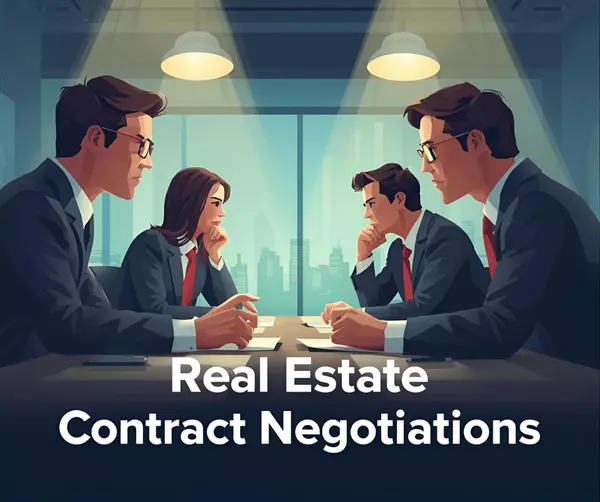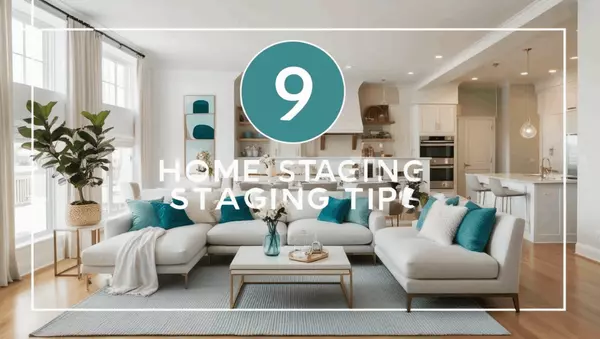Talk Less, Win More: Real-World Negotiation Skills from an OKC & Edmond Agent

Why Negotiation Matters (Even When Everyone’s “Nice”)
In Oklahoma City and Edmond, we pride ourselves on friendly front-porch vibes—but when you’re buying or selling a home, “nice” doesn’t replace strategy. A great negotiation protects your money, timeline, and sanity. My approach blends street-level market knowledge with proven tactics from three classics: Never Split the Difference (Chris Voss, 2016), Bargaining for Advantage (G. Richard Shell, 2006), and Crucial Conversations (Patterson, Grenny, McMillan & Switzler, 2012). I use their playbooks every day—minus the hostage scenarios, of course (Voss, 2016).
The Micro-Markets That Shape the Strategy
Oklahoma City isn’t a single market—it’s a cluster of micro-markets:
- Urban Core (Plaza District, Mesta Park, Crown Heights): Character homes draw design-savvy buyers who value walkability and charm. They’ll pay for updated systems and thoughtful restorations.
- Nichols Hills & Lakehurst: Luxury pockets where condition, privacy, and finish levels carry serious weight. Sellers here expect strong qualifications and precise terms from buyers.
- Bricktown/Downtown Condos: Attract professionals who trade yard work for skyline views. Negotiations center on HOA health, amenities, and appraisal strategy.
Edmond leans family-first and convenience-driven:
- Deer Creek/West Edmond New Construction: Buyers want value, warranties, and incentives—hello, builder negotiations.
- Central & East Edmond Established Neighborhoods: School ratings and commute times matter. Clean inspections and tight timelines win over price hair-splits.

Different sub-markets, different levers. Your negotiation should reflect who’s across the table and what’s premium in that zip code.
Calibrated Questions & Tactical Empathy (Voss)
Former FBI negotiator Chris Voss is big on calibrated questions: open-ended prompts that invite problem-solving (“How can we structure this so your seller feels confident about closing on time?”). Paired with tactical empathy—demonstrating you understand the other side’s pressures—this disarms tension and surfaces solutions (Voss, 2016).
How I use it here:
- In multiple-offer Edmond scenarios, I’ll ask listing agents what the seller values most besides price: lease-back? speed? fewer repairs? Then we tailor terms to win without overpaying.
- In OKC’s historic districts, I mirror concerns (“Sounds like preserving the original windows matters to your seller”) and propose concessions that protect both value and heritage—often cheaper than tossing more money at the problem.
Pro Tip: A calm “It seems like the closing date is the sticking point” (a Voss-style label) gets more traction than “You’re being difficult.”
Your BATNA, in Boots (Shell)
Shell’s cornerstone is BATNA—Best Alternative To a Negotiated Agreement. Translation: know your walk-away plan (Shell, 2006). Buyers with a strong BATNA (another home they’d happily choose) negotiate with confidence. Sellers with a clear plan B (temporary housing lined up, pre-inspection done) don’t fold on last-minute nitpicks.
How I use it here:
- Edmond new-builds: I compare incentives and lot premiums across builders so buyers have legitimate alternatives. Better BATNA, better terms.
- Nichols Hills resales: For sellers, we pre-package inspection reports and bids, so if a buyer overreaches on repairs, we can pivot to the next best offer—quickly and credibly.
Pro Tip: BATNA isn’t bluster. It’s preparation that lets you say “no” without drama.
Keeping Cool When Stakes Feel Personal (Patterson et al.)
A crucial conversation is when opinions vary, emotions run high, and outcomes matter (sounds like inspection week?). Patterson et al. emphasize creating a safe dialogue so the real issues surface and deals stay on track (Patterson et al., 2012).
How I use it here:
- When an appraisal comes in light on an OKC bungalow, we separate facts from feelings, then co-create options: rebuttal package, price adjustment, or creative concessions.
- When inspection reports spook first-time buyers, we normalize the findings, price the fixes, and negotiate solutions without torching goodwill.
Pro Tip: “Let’s look at what we both want: a smooth close and a fair outcome” resets the tone and gets everyone solving, not sparring.
Offer Tactics That Win in OKC & Edmond
For Buyers
- Write for Humans, Not Just Spreadsheets: Alongside strong terms, include clarity that reduces seller stress: shorter option windows with scheduled inspections, proof of funds, lender intro, and a bullet-point timeline. That reads like certainty.
- Aim for “Fair-But-Firm”: Use Voss’s Ackerman style thinking—target, first offer, counters—while anchoring with market data from the specific micro-market (Voss, 2016). Your “why” sells your number.
- Think Trade-Offs, Not Give-Ups: If you raise earnest money, ask for a seller credit cap on repairs. If you flex on the close date, secure access for measurements or contractor bids. Shell would call this expanding your “negotiables” (Shell, 2006).
For Sellers:
- Pre-Inspection = Power: You’ll control the narrative and shorten the renegotiation window. Crucial conversations become calmer when facts are upfront (Patterson et al., 2012).
- Signal Certainty: Offer a preferred title company, pre-cleared HOA docs, and utility history. Buyers equate organization with trust—often translating to stronger offers.
- Leverage Micro-Market Heat: In Deer Creek’s busy segments, set a clear offer window and stick to it. In slower pockets, sweeten with rate buydowns or closing-cost credits—targeted, time-boxed, and marketed loudly.

Inspection & Appraisal—Where Deals Are Won (Quietly)
Inspection Chess, Not Checkers
Use Voss-style labeling to separate “must-fix” safety items from “nice-to-haves.” Then bundle concessions: a capped repair credit, plus one high-impact repair completed before closing. Buyers feel heard; sellers keep control of cost and schedule.
Appraisal Jiu-Jitsu
Bring comps that reflect condition and micro-location—Edmond cul-de-sacs with trail access are not the same as through-streets without it. Provide upgrade lists with receipts. If the value still falls short, shift to terms: rate buydown, personal property, or a split on the gap.
Communication That Closes
Scripts I Actually Use
- Buyer to Listing Agent: “How can we structure this so your seller has zero doubts about closing on time?”
- Seller to Buyer’s Agent: “We want you to feel great about the condition. Here are the licensed bids; we’re offering a credit that addresses the main safety items.”
- My Inner Monologue: “What’s our BATNA and how do we make it stronger before the next call?”
The Humor Advantage
A light, respectful tone defuses tension and keeps doors open. Smiles don’t replace strategy—but they make strategy easier to accept.
The Bottom Line
Great negotiation isn’t about “winning” at someone else’s expense. It’s about clarity, options, and calm under pressure—tailored to OKC and Edmond’s micro-markets. With calibrated questions (Voss), a strong BATNA (Shell), and steady dialogue even when the stakes feel personal (Patterson et al.), you protect what matters most: your equity, your time, and your peace of mind.
Ready to put these skills to work on your next move? I’ve got the playbook—and the neighborhood know-how.
References
- Voss, C. (2016). Never Split the Difference: Negotiating As If Your Life Depended On It.
- Shell, G. R. (2006). Bargaining for Advantage: Negotiation Strategies for Reasonable People (2nd ed.).
- Patterson, K., Grenny, J., McMillan, R., & Switzler, A. (2012). Crucial Conversations: Tools for Talking When Stakes Are High (2nd ed.).
Categories
Recent Posts












